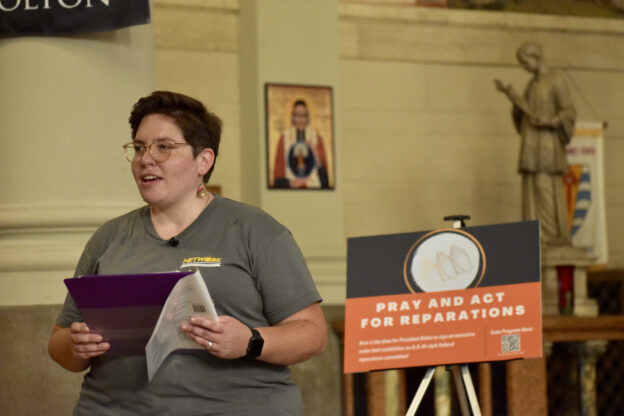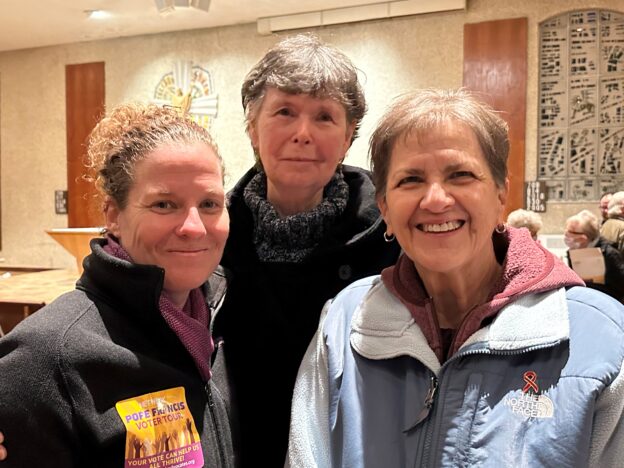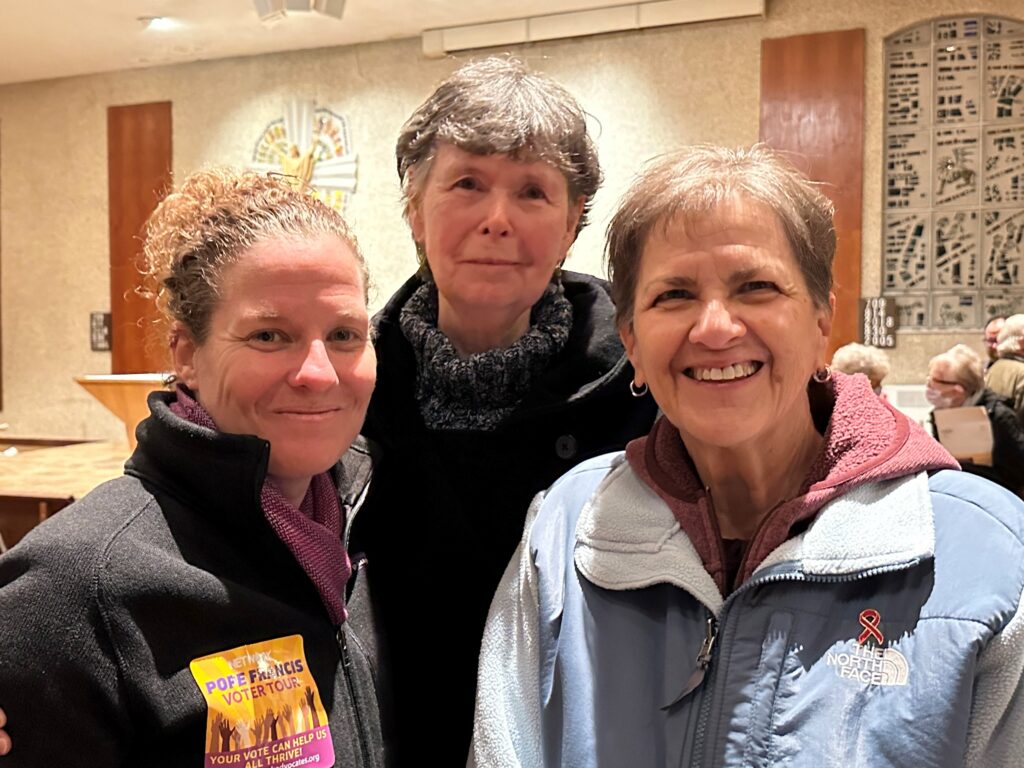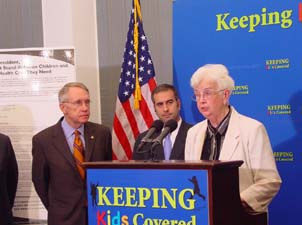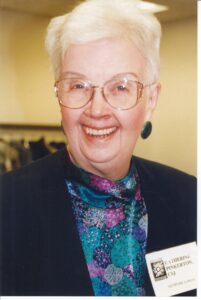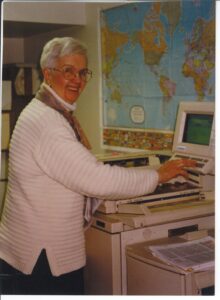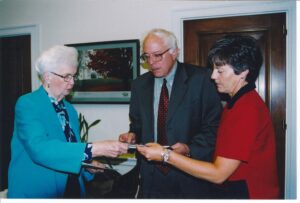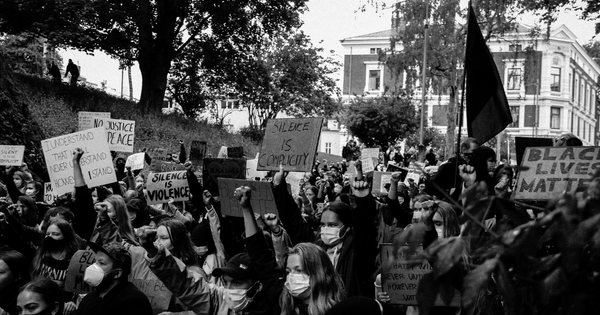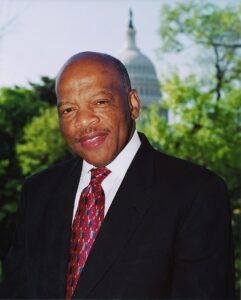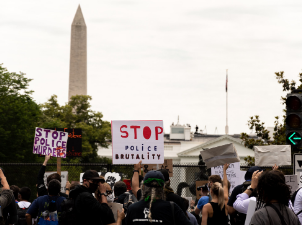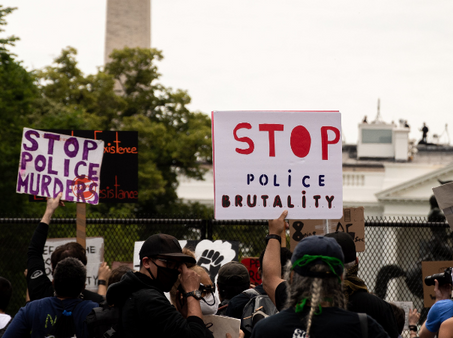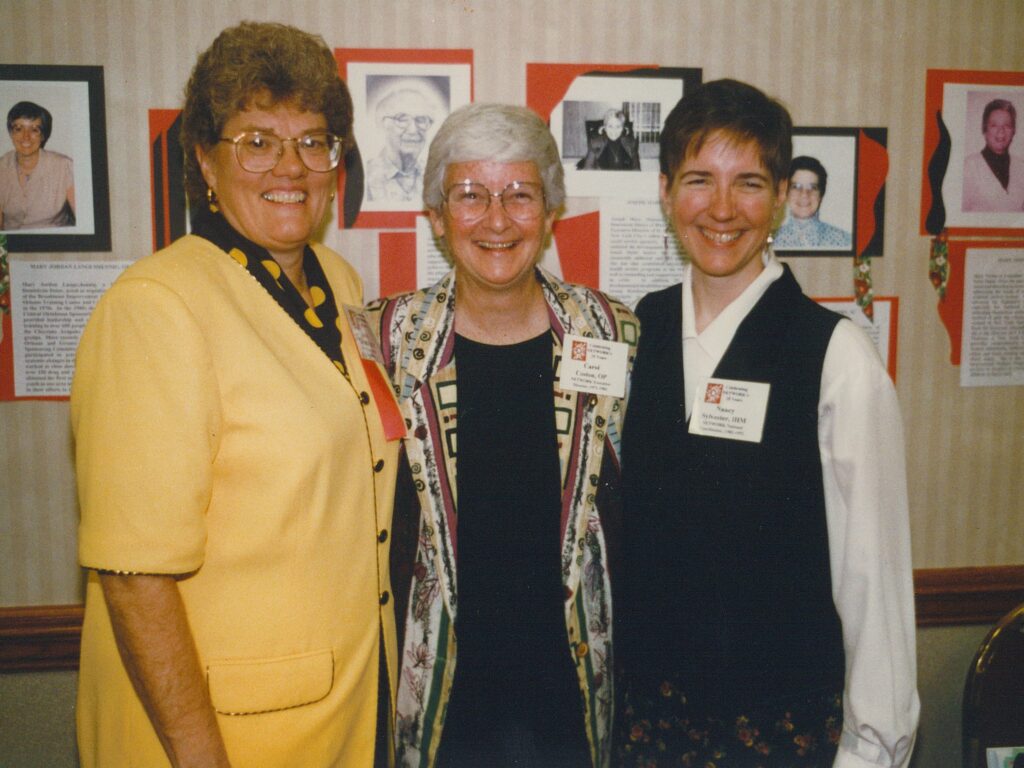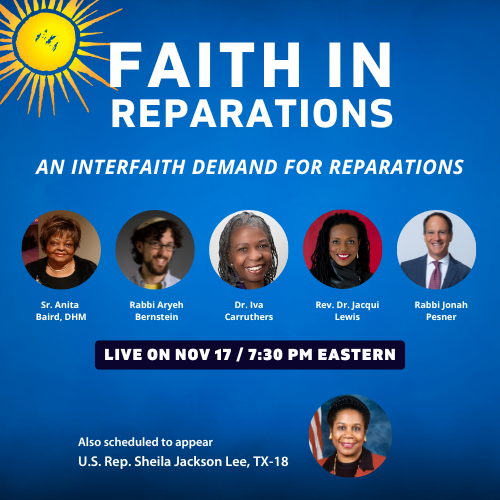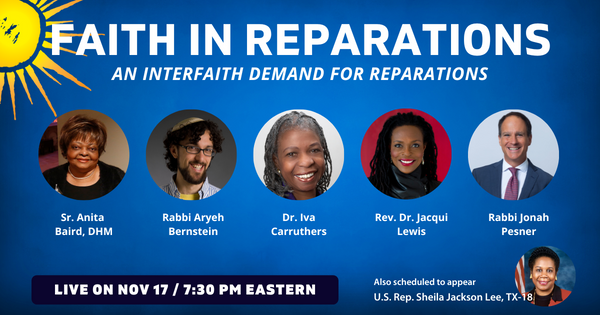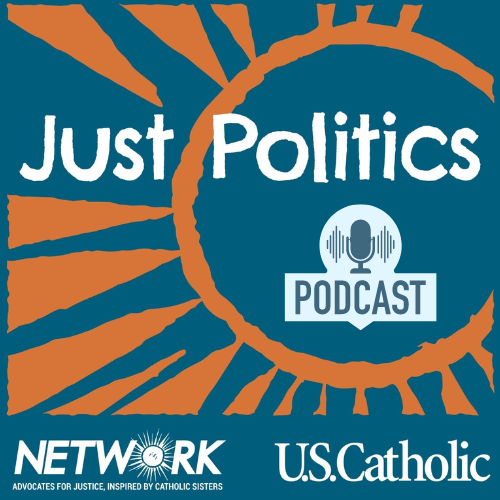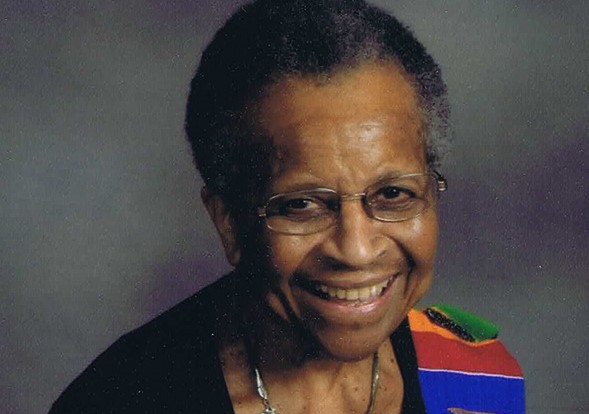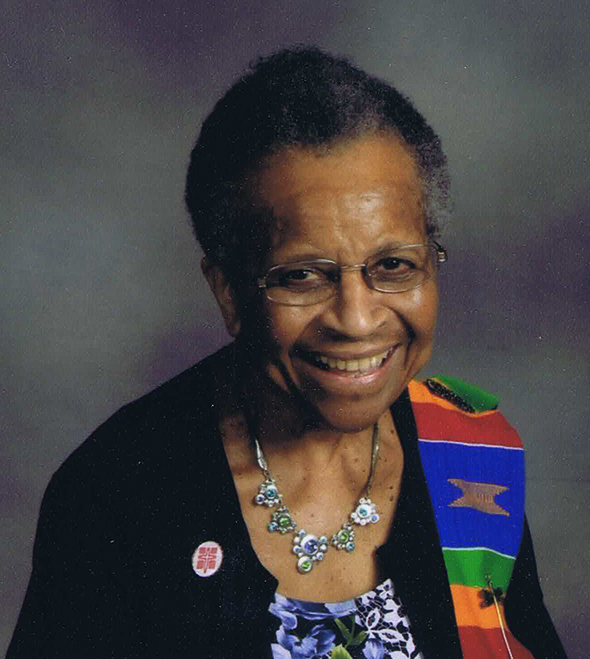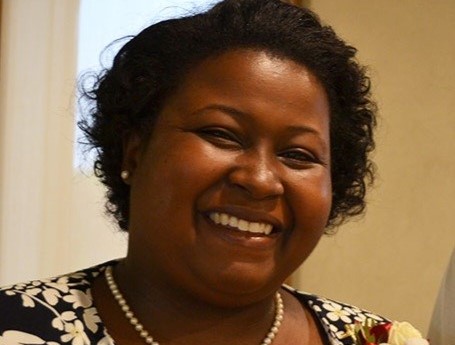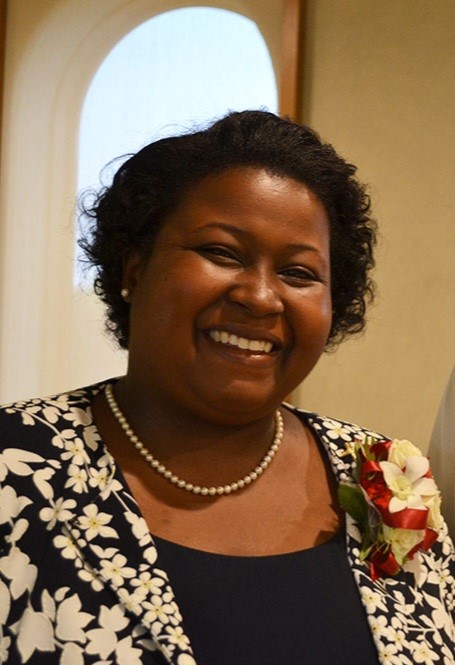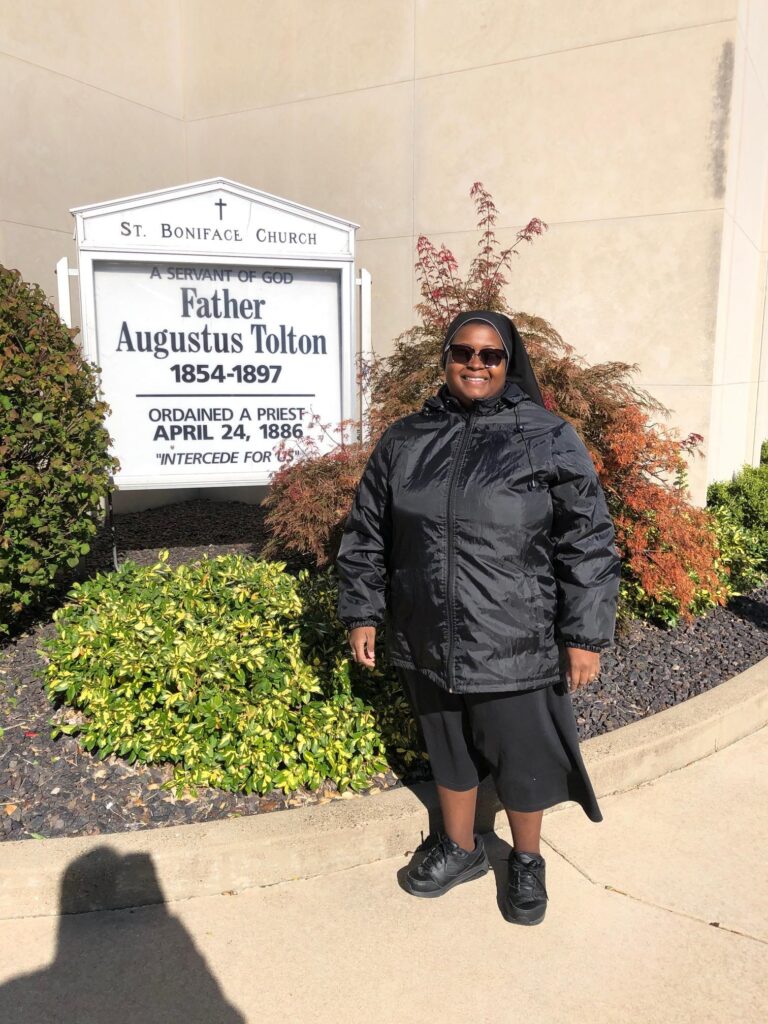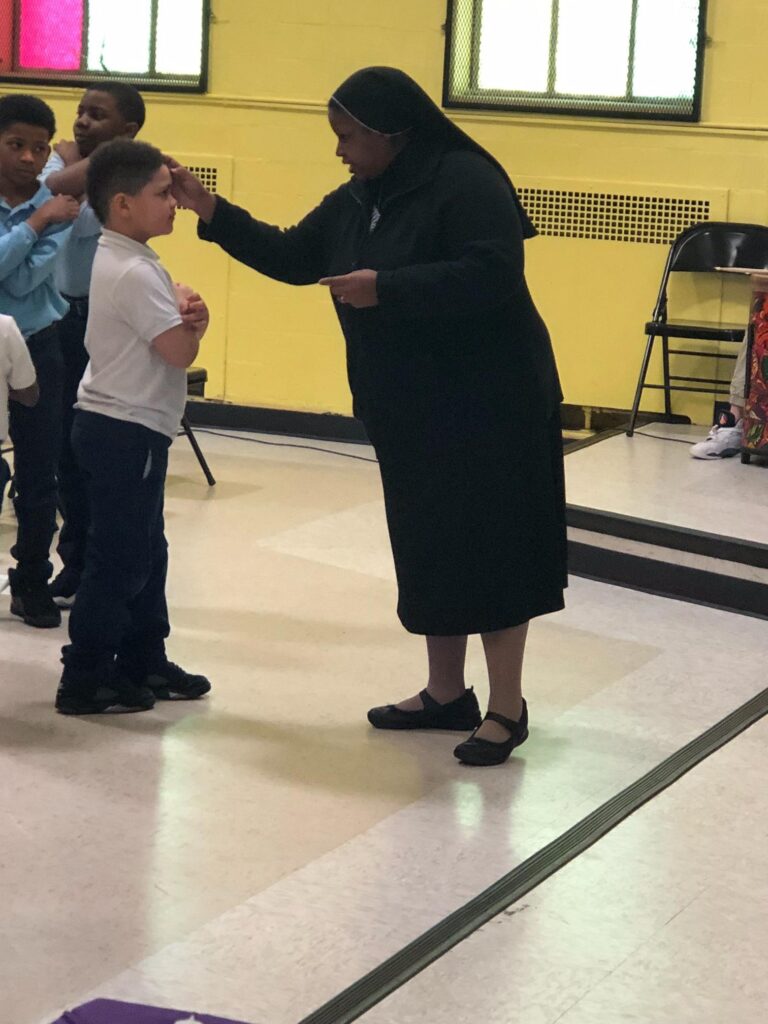
The Welcoming Call
Solidarity with Migrant People is Intrinsic to the Vocation of Catholic Sisters
Sr. Eilis McCulloh, HM
August 1, 2023
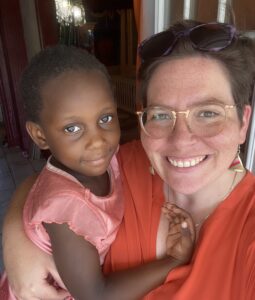
Sr. Eilis McCulloh, HM, pictured with Eilis, a member of the Congolese community in Cleveland, Ohio.
For generations, Catholic Sisters in the U.S. have served alongside immigrant communities. Time and again, we have responded to the call to open our homes and hearts to meet the needs of families seeking asylum or newly arrived refugees. Our sisters and our communities have sponsored refugees, opened service agencies, taught English as a second language (ESL), served along the border, accompanied individuals and families, represented them in court, and advocated for just immigration policies. In so many ways, we have lived the call in Scripture to welcome the stranger and love our neighbor as ourselves.
My own story of ministry is a part of this multi-generational call. In 2010, I began my own journey working with the Somali refugee community in St. Cloud, Minn. In subsequent years, I ministered alongside people from Bhutan, Iraq, Afghanistan, Burma (Myanmar), Sudan, the Democratic Republic of the Congo, Guatemala, and so many other countries. I learned about the asylum system in Immokalee, Fla. and witnessed the conditions that force a person to flee their homeland in Haiti or Guatemala. My own community, the Sisters of the Humility of Mary, remains connected through the sponsorship of Mary’s House in Cleveland. This work connects me with generations of sisters who have felt this call.
Ministering alongside asylum seekers, refugees, DACA recipients, and other immigrants has shifted the way many of us Sisters understand immigration policy. We can no longer distance ourselves from the dangerous anti-immigrant rhetoric that has energized lawmakers to pass legislation to shut down and militarize the border, expand Title 42, deport asylum seekers from Haiti, or create an app that only recognizes white faces.
These horrible policies impact the people who are a part of my extended community. They affect our neighbors. They affect members of our own family. We no longer have the luxury of waiting for Congress to fix the broken immigration system; we must do our part to ensure that a just and equitable immigration system remains at the forefront of our representatives’ minds.
It was this sense of urgency that drove over 100 sisters and associates and their sponsored ministries to Washington DC in December 2021 to march for, pray for, and call for the end of Title 42. At that event, Sisters shared stories of ministering at the border, in Florida with the Haitian community, and in cities across the country. We shared a common understanding that our lives are forever changed by time spent ministering in El Salvador, Honduras, and many other countries.
We shared with each other our own experiences of accompanying a family seeking asylum, only to watch helplessly as they were turned away by Border Patrol, or telling an individual that, according to current policy, they do not have a valid asylum claim even though a return to their home country would most certainly result in death. We also shared about moments of community — of shared meals of pupusas or beans and rice that made the Body of Christ a tangible offering that widened our understanding of community. All of these moments further strengthened our deeply held belief that the country’s immigration system needs an overhaul.
As women religious, our individual community’s charism informs how we respond to the call to minister alongside our country’s diverse immigrant communities and advocate for justice. While our ministerial actions might vary, we all believe that all people, no matter their country of origin, economic status, family composition, gender or sexual orientation, or reason for migrating, deserve the opportunity to apply for asylum.
This is the foundation of our belief as Christians: that all people reflect the Imago Dei — the image of the loving God who created them. Therefore, we will continue to call on our elected officials to stop playing politics with the lives of our immigrant siblings and create an immigration system that works for all people.
Sr. Eilis McCulloh, HM is NETWORK’s Education and Organizing Specialist and a co-host of the podcast Just Politics, produced in collaboration between NETWORK and U.S. Catholic magazine.







